For Choice Market, valuable data that will help inform its next generation of convenience stores was wrapped up in a seemingly unlikely place — a breakfast burrito.
The Denver-based company’s burritos, made from a proprietary recipe that includes house green chili and comes in a vegan version, have long been one of its best-selling items. But when Choice Market implemented Microsoft Smart Store Analytics, combined with AiFi’s camera-only technology that enables autonomous shopping, it made a startling discovery that changed its approach to the popular product.
The app’s heat map showed that customers were heading for the burrito area in the afternoon — and walking away empty-handed. The company responded by ramping up burrito production across its stores and moving the burritos up closer to eye level, increasing sales of the breakfast-turned-lunch item by half almost overnight.
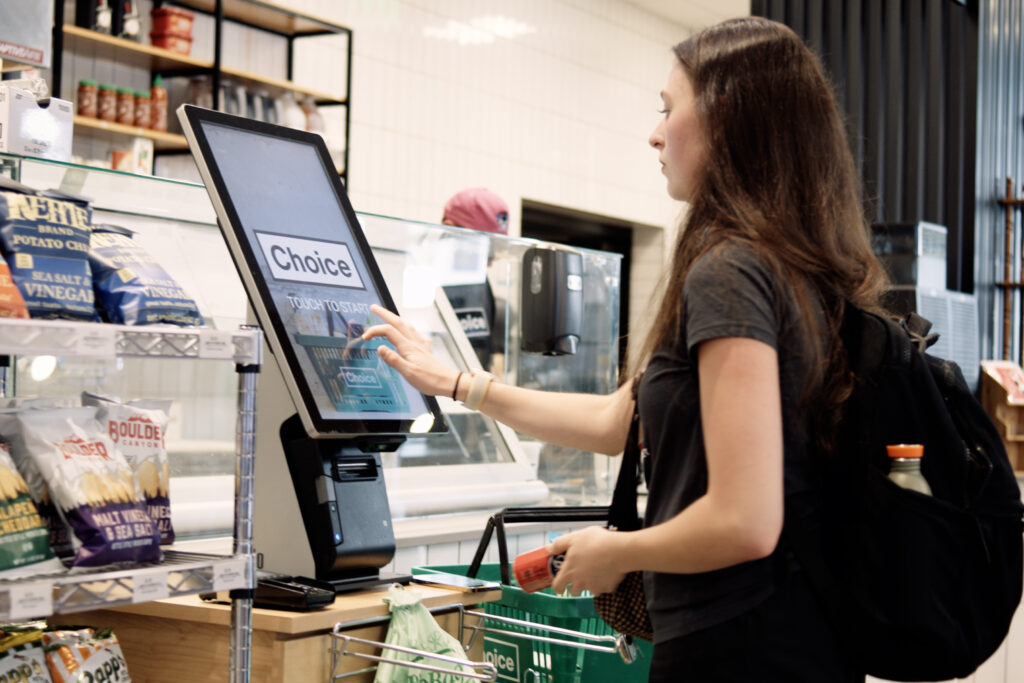
“We figured people would not want a breakfast burrito in the afternoon or evening, but we looked at the data and we realized that we were wrong,” says Amanda Dentici, chief operating officer for Choice Market. “And we’re happy to be wrong in that situation.”
The example underscores the importance of data for understanding customer behavior as Choice Market moves further into the autonomous retail market. Its first store, an urban market that opened in 2017, has a full kitchen turning out made-to-order bowls, salads and other items. That was followed by a combined convenience store and fuel center with charging for electric vehicles, a second urban market and three minimarts, all in Denver, and additional stores are opening soon.
Ranging from 50 to 500 square feet, the minimarts are fully autonomous, meaning no cashiers, lines or checkouts. Using Choice Market’s app, customers scan a QR code when they enter the store, and AiFi’s system — which uses sensors and computer vision, a type of AI — identifies what they pluck from store shelves, then the app delivers a receipt within minutes of a purchase. Customers can also order groceries and fresh meals for pick-up through the app or have items delivered by electric vehicle.
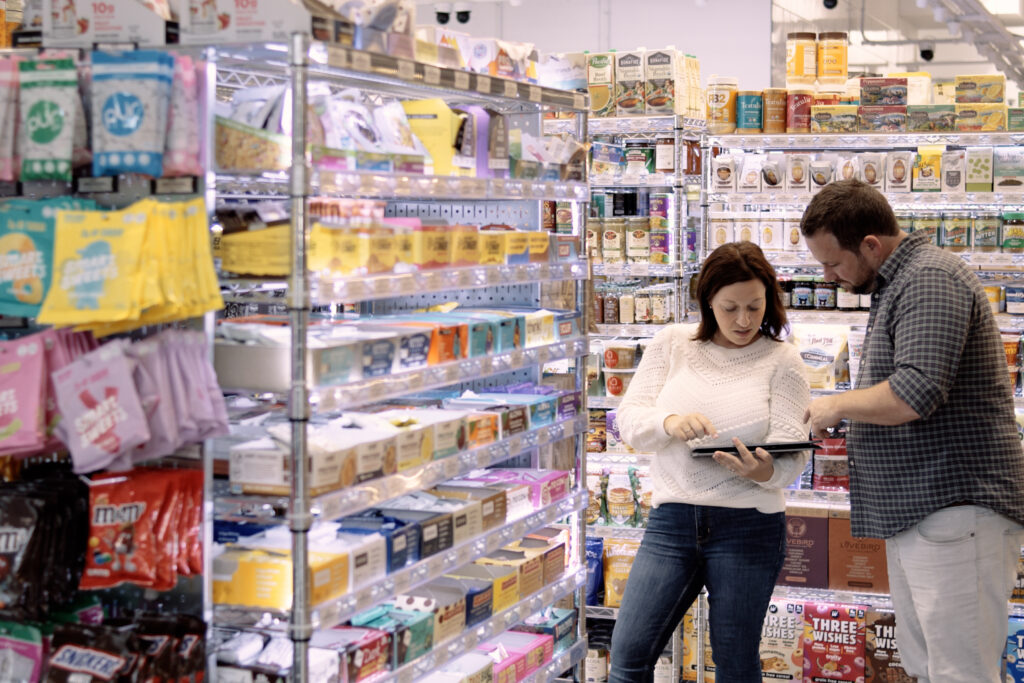
A frictionless shopping experience
When Choice Market CEO and founder Mike Fogarty launched the company, the autonomous retail industry was still in its infancy. Over the next few years, Fogarty says, he learned that providing a simple, seamless shopping experience that eliminates potential obstacles to making a purchase — the industry term is “frictionless” — was important for customer adoption. Additional challenges over the past few years, including labor shortages, inflation and soaring rates of retail theft, also influenced Choice Market’s move toward autonomous stores.
“There are all these headwinds facing our industry, so part of this is just the practical need to innovate and to automate where possible so that you can continue to grow and be a sustainable and profitable company,” Fogarty says.
“The other part is very much customer-centric. What’s more convenient than scanning your QR code once, grabbing your items and leaving, and then getting your receipt within five minutes or so? We’re essentially selling customers their time back.”
Microsoft launched Smart Store Analytics in January 2023 in partnership with California-based AiFi. The app uses data from AiFi’s AI-powered platform to provide insights that enable retailers to make better decisions about merchandising, inventory and store layout. It does not use biometrics or facial recognition, only creating a fully anonymous stick-figure virtual avatar of customers as they enter a store.
Choice Market installed Smart Store Analytics a few months after its release and was soon getting valuable insights. Beyond the burrito scenario, the company discovered that customers were buying items together that traditionally aren’t near each other in stores, such as energy drinks and refrigerated protein bars, and that they most frequently chose a certain flavor of chips — Doritos Nacho Cheese — to accompany a sandwich.
After moving those items close to each other, Choice Market saw an immediate uptick in sales. Average shopping times dropped from four to two minutes, and the company hopes to get that down to about 90 seconds.
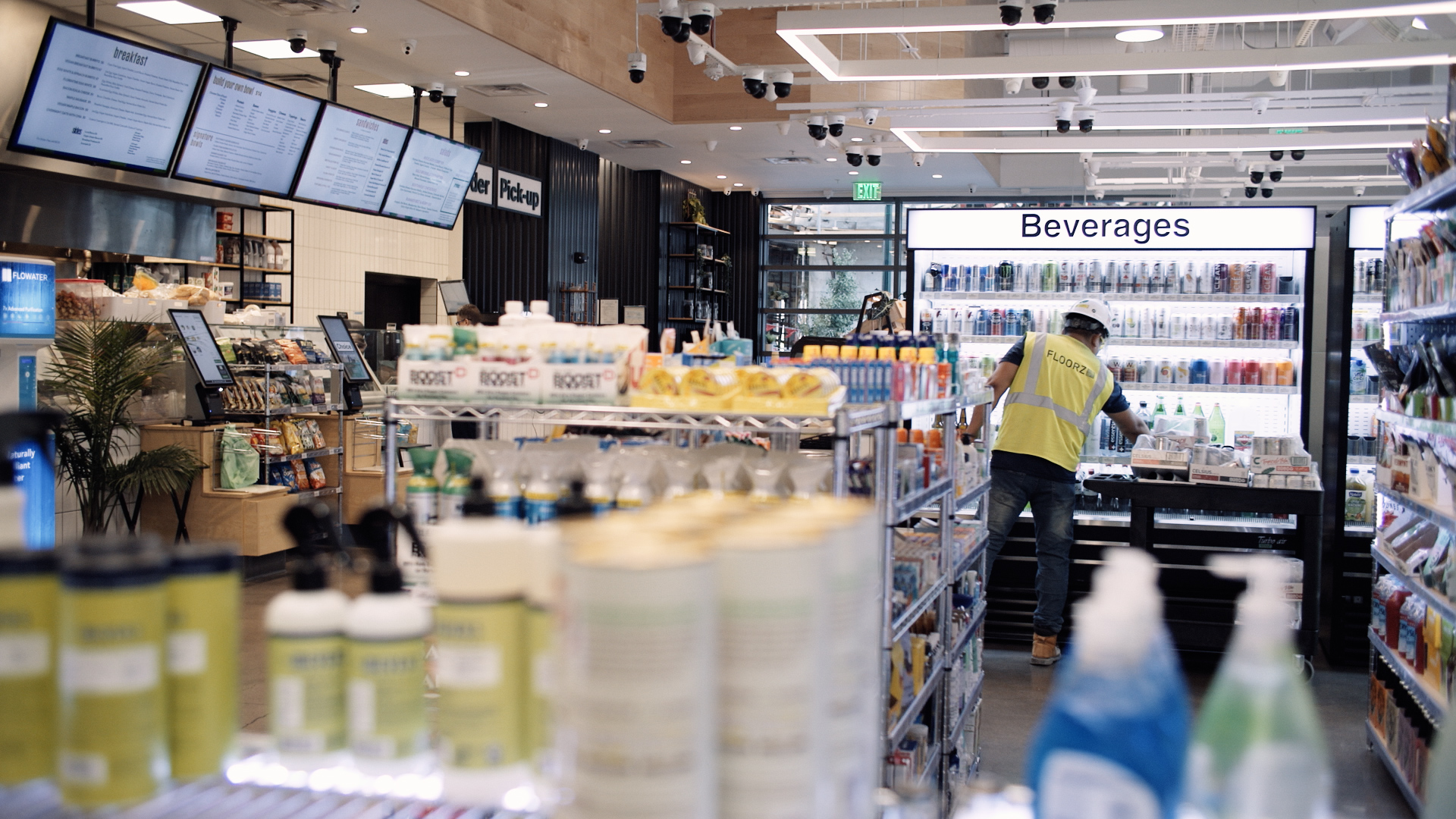
The insights provided by Smart Store Analytics, Fogarty says, are “exactly what we need and want as a retailer. And in fact, for pretty much every retailer, it’s a true unlock. It’s digitizing what was only available on online channels and e-commerce and bringing that into the real world, giving you the ability to understand who’s coming into your store and why they’re not shopping certain fixtures and what they’re putting back on the shelf versus buying.
“That was never available, but now it is, and that data is indescribable.”
Convenience stores that appeal to women
Fogarty founded Choice Market after seeing a need for a store offering higher-quality, healthier foods than the typical convenience store and that didn’t require customers to navigate through large parking lots and sprawling supermarkets to access those items.
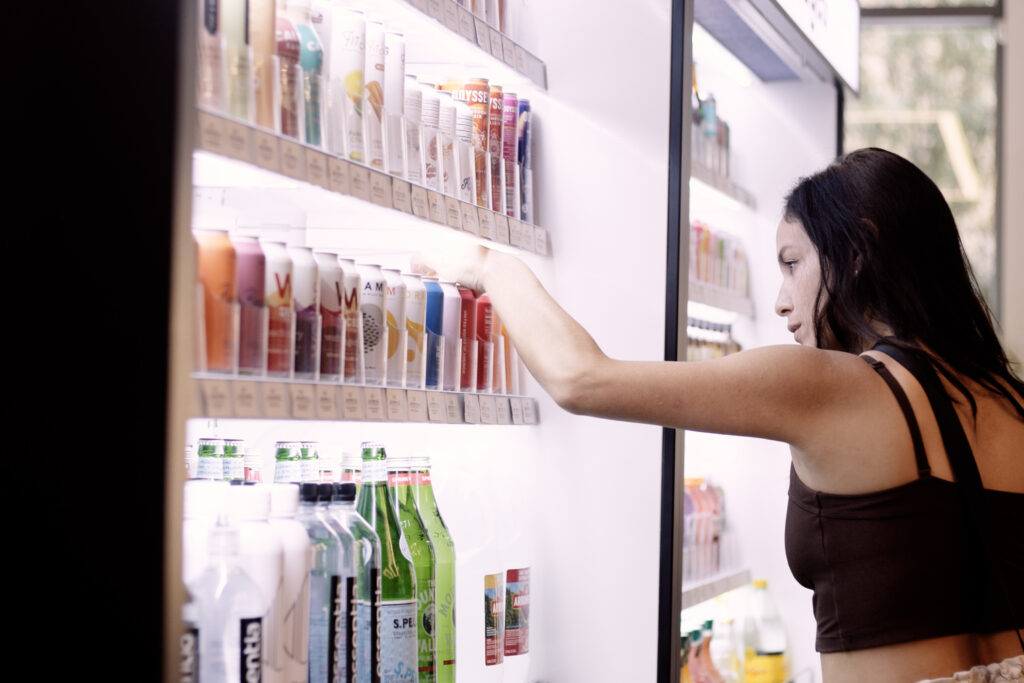
He had spent time in Barcelona and appreciated being able to go to a neighborhood market and get what he needed every few days. The U.S. convenience store market, Fogarty felt, hadn’t evolved much over the past half-century; legacy convenience stores stocked largely the same products they always had, in the same layout, and weren’t changing with the times as consumers shifted to smoking less, driving fewer miles and choosing healthier foods.
In particular, Fogarty felt the industry was overlooking an important demographic — health-conscious, urban-dwelling millennial and Gen Z women who are more likely to reach for a smoothie than a Slurpee or a veggie burger instead of a hot dog.
“There’s a lot of data out there that suggests that traditional convenience stores really struggle with in-store purchases from female demographics,” he says. “That was the core thesis of the business — that that customer still wants convenience and quick, fresh, healthy food, but there’s not a retailer out there providing those options to them or that choice.”
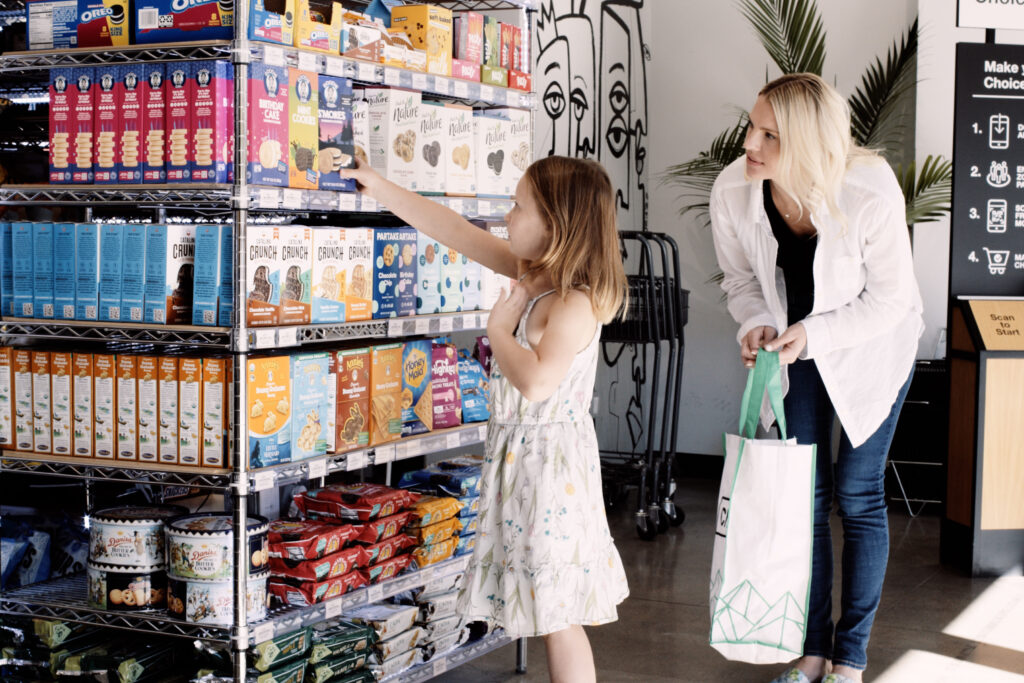
Having those options appeals to Denver resident Norma Quinones, who regularly pops into Choice Market to grab a snack of turkey sticks and her favorite beverage, a sparkling tea with hops, or sometimes a bowl with salmon and veggies. Shopping at Choice Market saves her the “stress tax” involved with bigger stores, she says, adding that even the self-checkout at another store near her home can take a frustrating amount of time.
“I just want to be in and out, especially if I just want to grab a snack,” says Quinones, who’s in her 30s and owns a juice company. “I don’t want to be in line for eight minutes to do it.”
Quinones also likes being able to get a quick, made-to-order meal that she says is typically better than other stores’ offerings.
“It has more of that restaurant experience of it being fresher and tastier than something you get at a hot bar that might be crusty around the edges,” she says. “I’ve had some great days at the hot bar, and I’ve had like a crummy $17 crusty-edge dinner that made me even sadder than when I was hungry.”
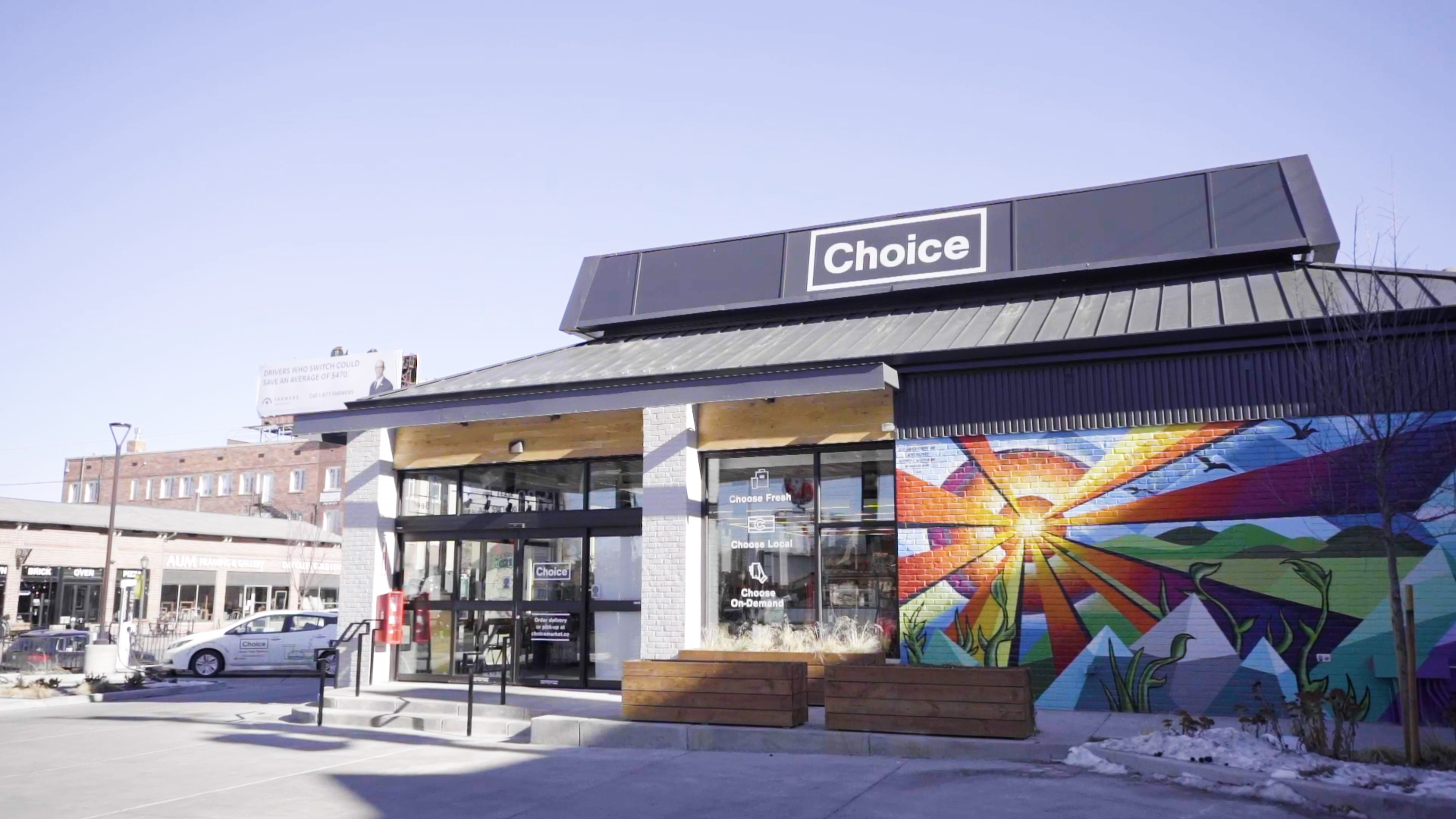
Choice Market has been as intentional about its stores’ interiors as what’s on their shelves. The modern, crisp black-and-white spaces are accentuated with art and pops of color, and thoughtful details such as plants and music help create a welcoming environment.
Dentici went into a Choice Market a few years ago while visiting family in Denver and was so impressed that she sent Fogarty a message on LinkedIn. At the time, she was the CEO of a small gourmet food and wine retail chain on the East Coast. Fogarty soon hired her as Choice Market’s COO.
“It really resonated with me when I walked in for the first time,” Dentici says. “Not only the merchandising and product selection, the fresh food offering and the quality, but also the music was warm and inviting and the bathrooms were really clean. The people working in the store were able to articulate the technology and were really friendly. I was so excited about the experience that I felt the need to reach out.”
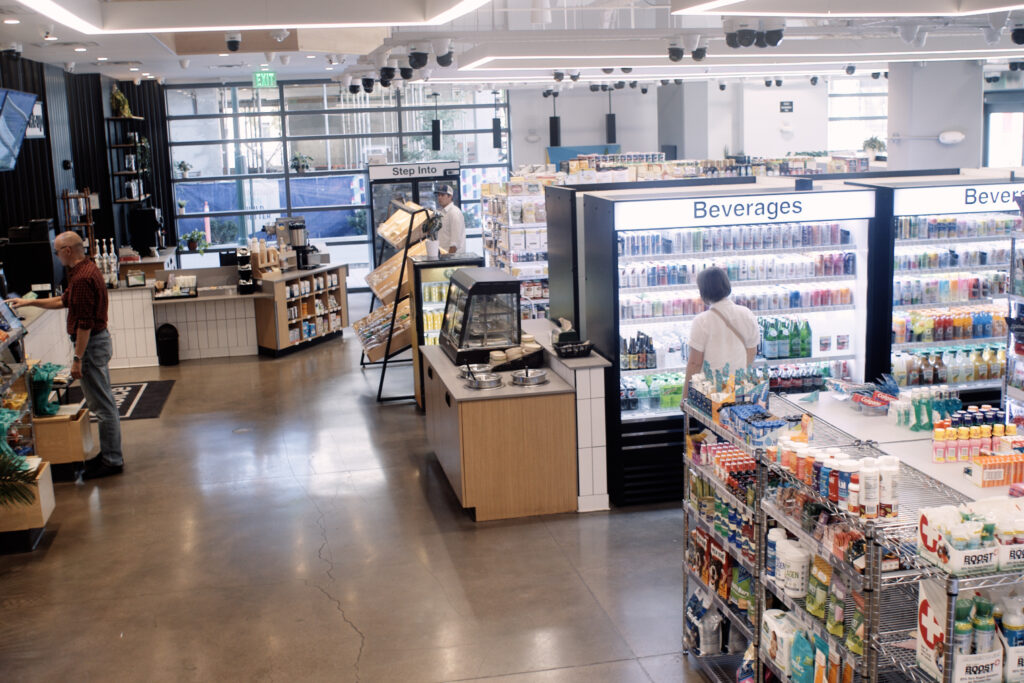
Choice Market seeks to further improve that experience through a chatbot it is developing to help customers as they shop. The company is exploring other uses of AI for customer service and operations, and plans to use insights from Smart Store Analytics to inform stock replenishment, determine optimum pricing and make additional merchandising decisions.
“We’re at the very early stages of unlocking the power of the data,” Fogarty says. “Having that data, in combination with a target customer that I think everybody’s looking to target — higher-income, younger, millennial and Gen Z customers — that data becomes very powerful in terms of insights and actionability.”
Top photo: Choice Market’s breakfast burritos became even more popular after the company implemented data-driven changes. All photos by Microsoft.


